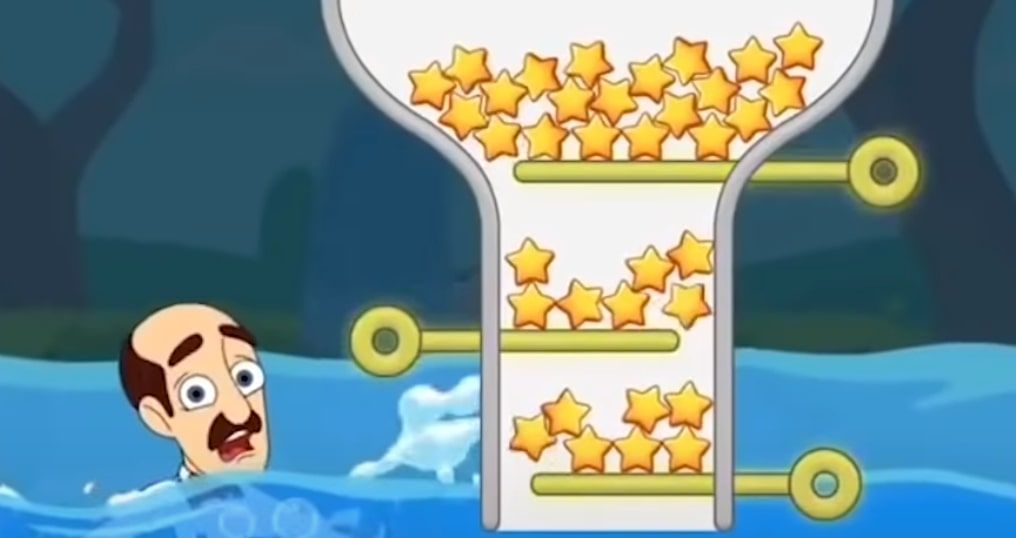
Real vs Fake: The Tale of Buzzed Gamer Ads

Real vs Fake: The Tale of Buzzed Gamer Ads
Have you seen an advertisement promoting a game on YouTube or another social media platform showing captivating scenes? But when you downloaded it, the game looked very different from what you expected? Advertisements like these are misleading and are mainly designed to increase conversion rates. In this case, you might think of them as scams.
Why do companies use fake ads to promote their games? How can you confirm that the gameplay in the advertisement is real or just misleading? And how should you respond to such fake ads?
What Do Fake Ads Look Like?

Video ads showing gameplay that’s different from the actual game are considered fake. These misleading ads exaggerate the game’s graphics, making it seem more realistic than it is.
In some cases, advertisers use catchy headlines and visually appealing footage to attract the audience’s attention, while in other cases, they oversexualize the ad to encourage the viewer to take action.
Since these ads can be highly misleading, why are they allowed in the first place?
Why Don’t Advertising Companies Ban Fake Ads?
Ad companies usually approve such ads for publication and do not ban them because they are designed so that, despite misleading the audience, they do not violate a company’s terms and conditions.
Advertising companies consider ads deceptive andsuspend ad accounts if they misrepresent a product or service in an effort to sell it. As fake gameplay ads do not involve a sale, they don’t qualify as misleading; they simply want the user to download the game free of charge.
Just like that, advertisers make every effort to ensure that their ads align with the company’s policies to avoid being banned. It begs the question: Why do companies use fake advertisements?
Why Do Companies Use Fake Advertisements to Promote Their Games?
Companies use fake advertisements to make their promotional campaigns successful. So, to understand why they do this, we must first understand what makes a campaign successful.
Ad campaigns require advertisers to pay a fee to the publisher, which then displays the ad to the targeted audience. Every time a user views the ad, an advertiser incurs a cost. If a user clicks on an ad and performs the action the ad was aimed at—in most cases, installing the game—it counts as a successful conversion.
With a more engaging ad, the conversion rate increases, the cost per install decreases, and the campaign becomes more successful. However, if more users skip the ad and don’t install the game, it costs companies more and lowers the conversion rate, making the campaign ineffective.
It makes sense, then, that companies invest a considerable amount to make the advertisement appealing. To achieve this, they don’t hesitate to make the ad appear exaggerated or even completely misleading. Because such ads serve the primary purpose of ad creation, companies continue to use them.
How Can You Verify That the Ad You See Is Real or Fake?

So is there any way to check that the gameplay shown in the advertisement is real?
Confirming that the advertisement accurately represents the game you intend to install can save you from downloading something different to what you expected, and wasting your time and data. But how exactly can you do it?
Look at the related images under the app’s listing on the App Store (iOS) or Google Play Store (Android). If the images aren’t in line with the gameplay, the ad is likely misleading.
Also, you can look up videos about the gameplay on YouTube. If the video doesn’t match what you’ve seen in the advertisement, it’s probably fake.
You can also read the most recent reviews on the store. If you see complaints about the game being different from what was portrayed in the advertisement, don’t download it.
How Should You Respond to the Fake Ad?
Besides not downloading the app through the misleading advertisement, if you are confident that the ad is fake, here’s what else you can do to prevent the wider community from wasting their time downloading the app:
- Add a review under the app listing on Android oralternatively rate apps on iOS describing how it uses fake gameplay to increase the number of installations.
- If you’ve seen the ad on a social media platform that lets you comment under the listing, such as Facebook, comment about how misleading it is.
- Immediately report the ad to the social media network so that they may review it and take it down.
- Expose how the game misrepresents gameplay in its ad campaigns on Reddit and other platforms. Users who search for the game directly on Google or anyother search engine will find this information useful.
How Do Fake Advertisements Affect Companies?

Using misleading gameplay to run profitable campaigns isn’t always a good idea. Fake ads increase the number of installations cost-effectively but has many downsides.
First, fake ads can damage the company’s reputation in the long run. Getting misled into downloading a game in such a way could lead users to skip downloading other games from the same publisher. The company could lose long-term customers who think they scam users.
Also, since the actual gameplay differs from what users expect, most players quit playing the game, and companies lose their long-term clients.
Furthermore, the fake ads result in many negative reviews, which can badly impact the game’s organic ranking. Consequently, the app gets very few organic installs, and companies have to rely mostly on advertisements to get new users.
The list of ways in which misleading advertisements can backfire goes on and on, so ultimately, while it might seem tempting at first, it’s ultimately not worth pursuing this line of thinking.
Don’t Be Misled by Fake Gameplay Ads
Knowing how to verify the authenticity of fake advertisements allows you to avoid being deceived. Be sure you report such ads to the social media platform they appear on. Take the necessary steps to prevent others from wasting their time and energy too.
And like fake gameplay ads, fake ads disguised as download links are all over the web. Keep an eye out for them to avoid being duped.
Also read:
- [New] Preventing Shake in Photographic Imagery
- [Updated] Premium Gaming Intro Ideas for YouTube Free vs Paid Models
- Connect Android/iPhone to Players' PCs Easily - Steam Link Tutorial
- Download Free DailyMotion Video Downloader: Convert Your Favorite Movies and Songs
- Expert Advice for Navigating CS2, Made Simple for Macs
- Extraordinary Living: a Lifestyle Worth Pursuing | Free Book
- Fix 'Game Not Loading': Verify Save Files & Get Back in Action
- IFA Showcase Spotlight: Lenovo Legion Go's Edge
- In 2024, Cutting-Edge Techniques for Exceptional SRT Files
- Simple ways to get recent calls back from Vivo Y17s
- Step-by-Step Guide: Converting Your Spotify Playlists Into Written Documents
- Swift Feet, Sweat, Play: The 7 Top Sports Games (iOS/Android)
- Transform Your Gameplay with EA Play's Multitude of Features on PS5 Console
- Unwanted Virtual Goods? Refunding Your Fortnite Costs
- Title: Real vs Fake: The Tale of Buzzed Gamer Ads
- Author: William
- Created at : 2025-01-06 18:37:03
- Updated at : 2025-01-11 05:16:24
- Link: https://games-able.techidaily.com/real-vs-fake-the-tale-of-buzzed-gamer-ads/
- License: This work is licensed under CC BY-NC-SA 4.0.